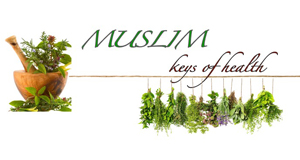PAINFUL SEX?
These Two Words Don’t Belong Together!
Sex is meant to be a pleasurable and relaxing affair. Unfortunately, that’s not the reality for many women. Sex for them is often a painful and uncomfortable experience which leaves them dreading the time with their loved one which is supposed to be sensual and exciting.
Even though women of any age can experience this discomfort, a condition called dyspareunia, it is more prevalent among post-menopausal women. According to some statistics, between 25% and 45% of postmenopausal women suffer from dyspareunia.
Even though there are many causes for dyspareunia, in women over 50 it is usually vulvovaginal atrophy. It is when the vulva and vagina no longer have the beneficial effects from estrogen that they did prior to menopause. Lower estrogen levels impact vagina’s ability to secrete lubricant, to expand and contract, and to grow new cells. Overtime blood flow reduces and the vagina and vulva can shrink as cells die off and aren’t replaced. This results in soreness, burning after sex, pain during intercourse, and sometimes post-sex bleeding.
Now the question is…do women need to live with this condition?
Thankfully the answer is no! There are many treatments available, medical and alternative. In here we will discuss some of the most readily available treatments.
More Sex!
Turns out one of the best treatments doesn’t involve any intervention! The more often you have sex, the less likely you are to develop serious atrophy. That is because sex increases blood flow to the genitals, keeping them healthy.
Estrogen
Since lack of estrogen is the cause of vulvovaginal atrophy, then supplementing estrogen seems like a reasonable solution. Both systemic estrogen such as oral pills and patches, and local estrogens such as creams, rings, and tablets are used. However, it is better to stick to local approach because it keeps the estrogen where it is needed, instead of interfering with the rest of your body.
Studies on the estrogen ring, cream and tablets have found high rates of improvement in dyspareunia. However, it is always better to exhaust all natural treatments before resorting to artificial methods. Increase foods that are packed with estrogen in order to overcome this problem, or avoid its onset in the first place. Some of the foods that help boost estrogen in the body are:
- Apples
- Alfalfa
- Barley
- Beets
- Cherries
- Carrots
- Celery
- Cucumbers
- Dates
- Fennel seeds
- Flaxseeds
- Legumes like chickpeas, red beans, black-eyed peas, green peas & split peas
- Oats
- Olive and olive oil
- Papaya
- Plums
- Pomegranates
- Potatoes & Yams
- Rhubarb
- Soybeans / Tofu
- Tomatoes
- Wheat
Estrogen products, like any other medicine, have side effects. These side effects vary for each woman. When using estrogen creams, pills, or rings, it is very important to notify your healthcare provider about any symptoms such as: headache, upset stomach, bloating, nausea, weight gain or weight loss, loss of sexual interest, breast tenderness, abdominal pain, respiratory conditions, vaginal itching, or vaginal yeast infections.
If you have or had breast cancer, or has a family history of it, you should discuss with your healthcare provider before trying any estrogen products.
Non-medicated Lubricants
Another alternative to using estrogen is over-the-counter lubricants designed to increase sexual comfort and satisfaction. These vaginal lubricants come in liquid and gel form and prevent friction, thereby reducing discomfort during intercourse. These can be applied to a woman’s vagina and vulva, or a man’s penis just before sex.
Other Reasons for Painful Sex
Not all women experiencing painful sex have vulvovaginal atrophy. There may be other reasons for their symptoms, such as:
- Vestibulodynia: It is the most common cause of sexual pain in younger women, but can also affect older and post-menopausal women. It is a condition in which women feel severe pain when any type of pressure or penetration is attempted on the vestibule, or entrance of the vagina.
- Vulvodynia: This condition causes irritation, stinging, burning, rawness, or pain on the vulva (the tissue that surrounds the vagina).
- Vaginismus: In this condition, the vaginal and perineal muscles involuntarily spasm when sexual activity is attempted. This makes the vaginal entry not only difficult, but almost impossible. It could be due to a previous traumatic sexual experience, or underlying physical conditions.
- Urinary Tract Issues: Inflammation of the bladder is a common cause of painful sex since bladder sits on top of the vagina and can be irritated during sex. Cystitis, chronic interstitial cystitis, acute cystitis are all bladder conditions which can make sexual experience a very painful one.
- Prolapsed Uterus: If uterus has dropped, it can make sex painful.
- Endometriosis: It is a condition in which uterine tissue grows outside the uterus.
- Trauma: Sexual trauma or childbirth trauma, such as tears and repairs may also cause sex to become painful.
Do Not Ignore!
Many women ignore or overlook this topic, or feel inapt to discuss it with their partner or their healthcare providers. It is a very unhealthy attitude, which can lead to greater harm—both emotionally and physically.
If you are experiencing painful sex, don’t feel shy or blame yourself. Discuss your condition in detail with a healthcare provider and use corrective measures under their supervision. Meanwhile, eat well, drink plenty of fluids, exercise, de-stress yourself, and value yourself!
Tags: sexual, female health, physical

